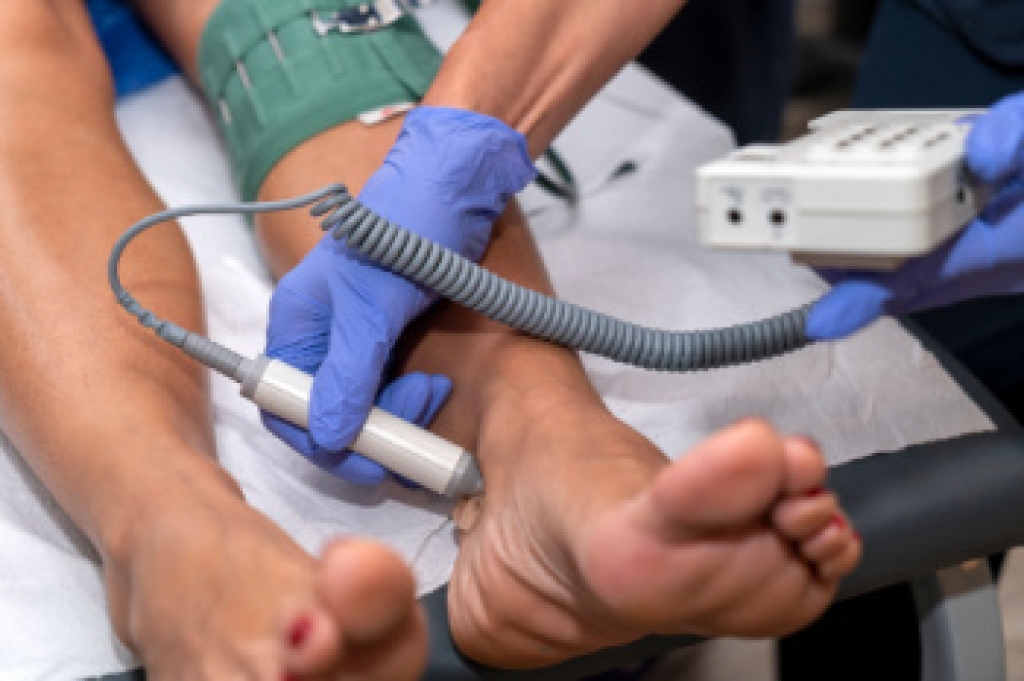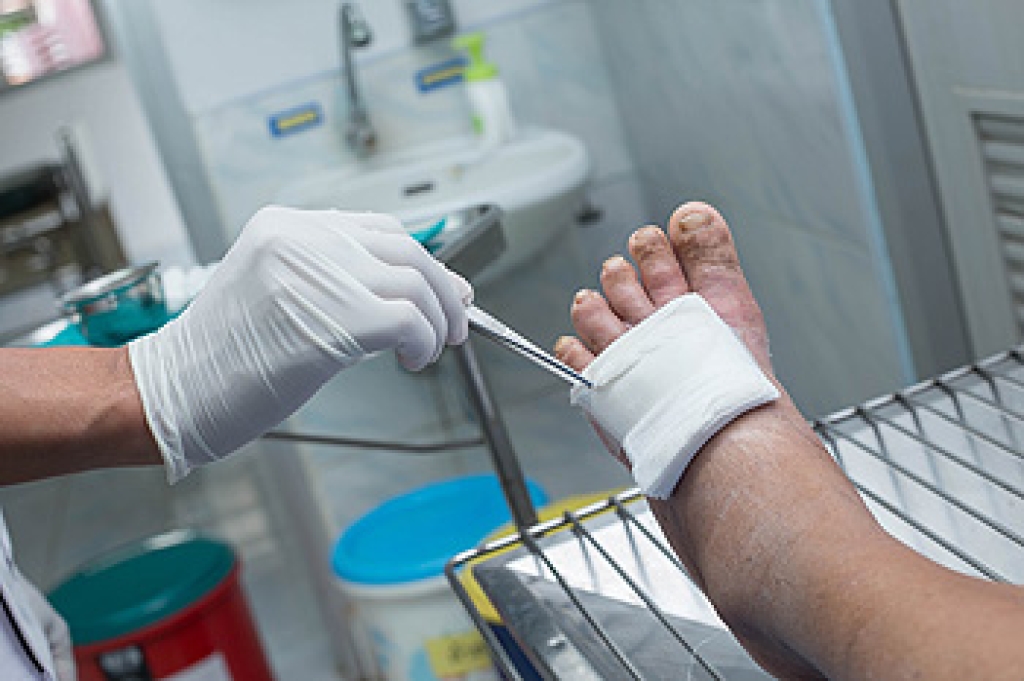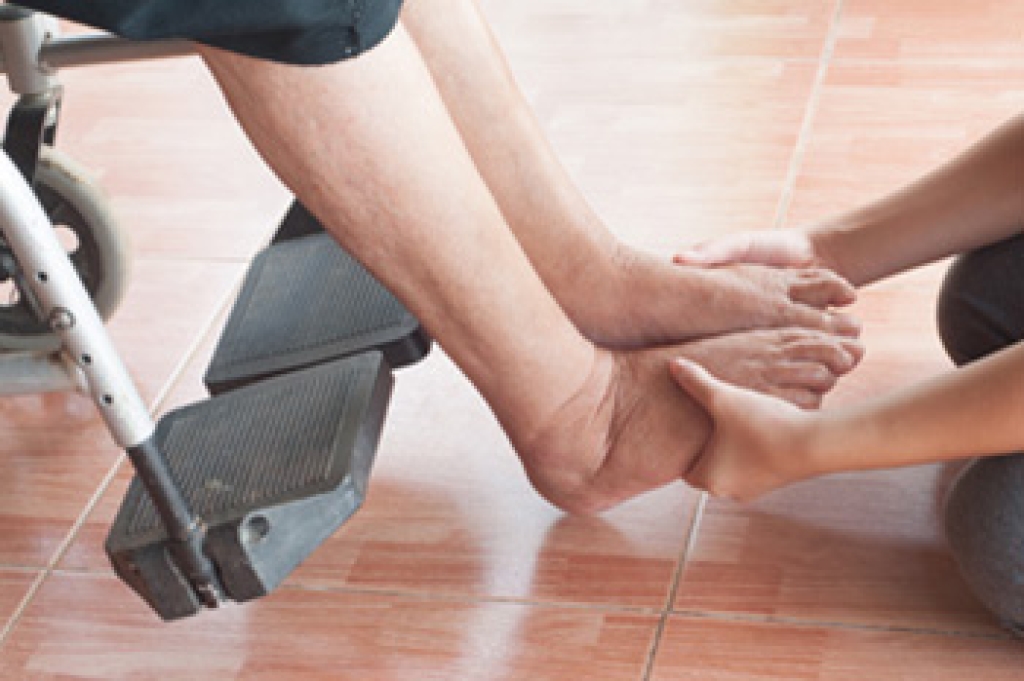
A vascular exam allows a podiatrist to assess how well blood is flowing to the feet and ankles. The exam often begins with observation of skin color, temperature, swelling, and changes in hair or nail growth that may signal reduced circulation. Pulses on the top of the foot and near the ankle are gently felt to evaluate arterial flow. The podiatrist gently presses on the skin of the toes to observe how quickly normal color returns, which reflects small vessel function. In some cases, a handheld device is used to listen to blood flow more clearly. These findings help identify circulation concerns that may affect healing, nerve health, or skin integrity. Vascular assessment is especially important for individuals with diabetes, wounds, leg pain, or slow-healing sores. If changes in foot color, temperature, or healing are noticed, it is suggested that you see a podiatrist for further evaluation and appropriate care.
Vascular testing plays an important part in diagnosing disease like peripheral artery disease. If you have symptoms of peripheral artery disease, or diabetes, consult with Michael Schwartzman, DPM from Illinois and Indiana . Our doctor will assess your condition and provide you with quality foot and ankle treatment.
What Is Vascular Testing?
Vascular testing checks for how well blood circulation is in the veins and arteries. This is most often done to determine and treat a patient for peripheral artery disease (PAD), stroke, and aneurysms. Podiatrists utilize vascular testing when a patient has symptoms of PAD or if they believe they might. If a patient has diabetes, a podiatrist may determine a vascular test to be prudent to check for poor blood circulation.
How Is it Conducted?
Most forms of vascular testing are non-invasive. Podiatrists will first conduct a visual inspection for any wounds, discoloration, and any abnormal signs prior to a vascular test.
The most common tests include:
- Ankle-Brachial Index (ABI) examination
- Doppler examination
- Pedal pulses
These tests are safe, painless, and easy to do. Once finished, the podiatrist can then provide a diagnosis and the best course for treatment.
If you have any questions please contact our offices located in West Chicago, IL and Whiting, IN . We offer the newest diagnostic and treatment technologies for all your foot and ankle needs.




